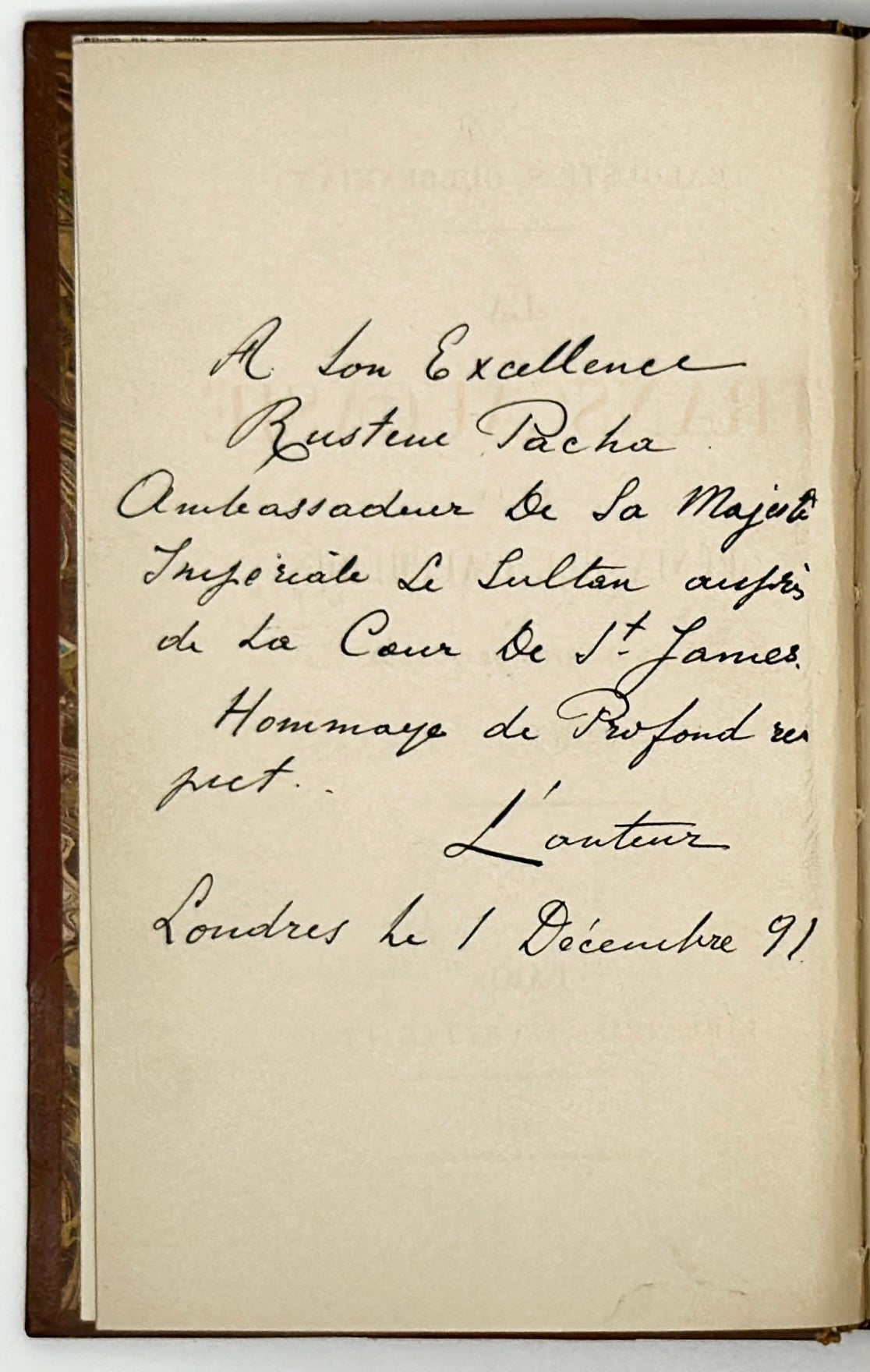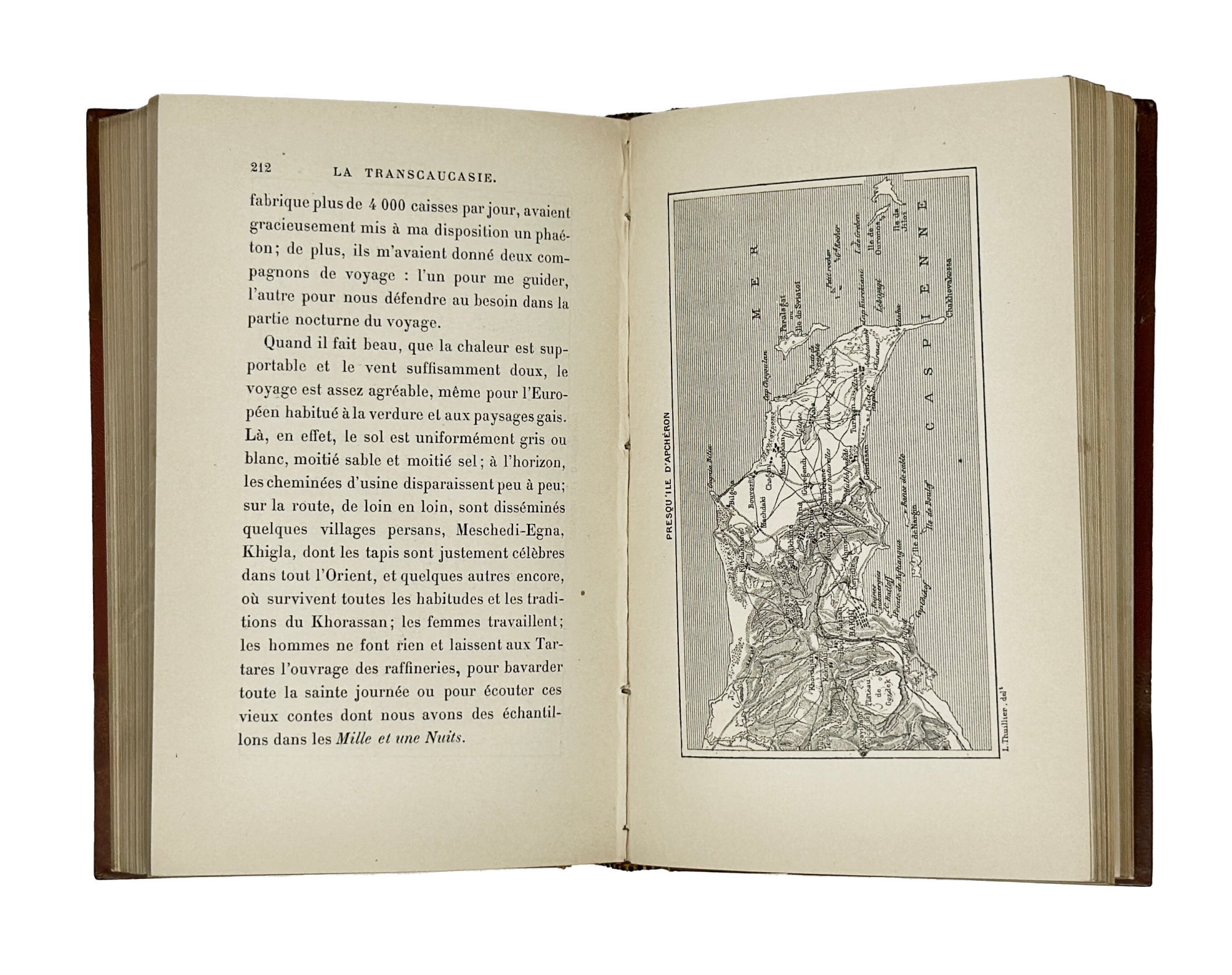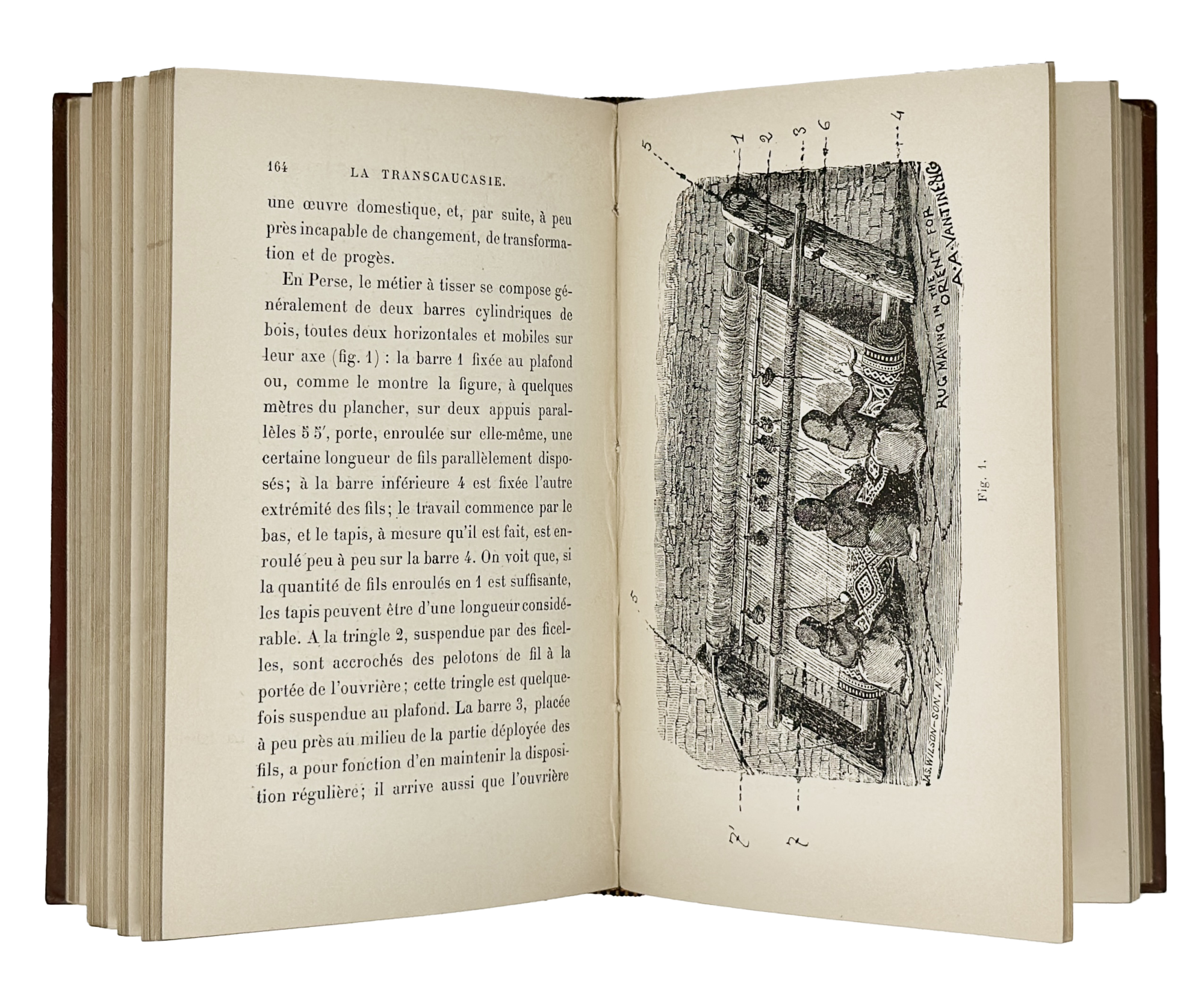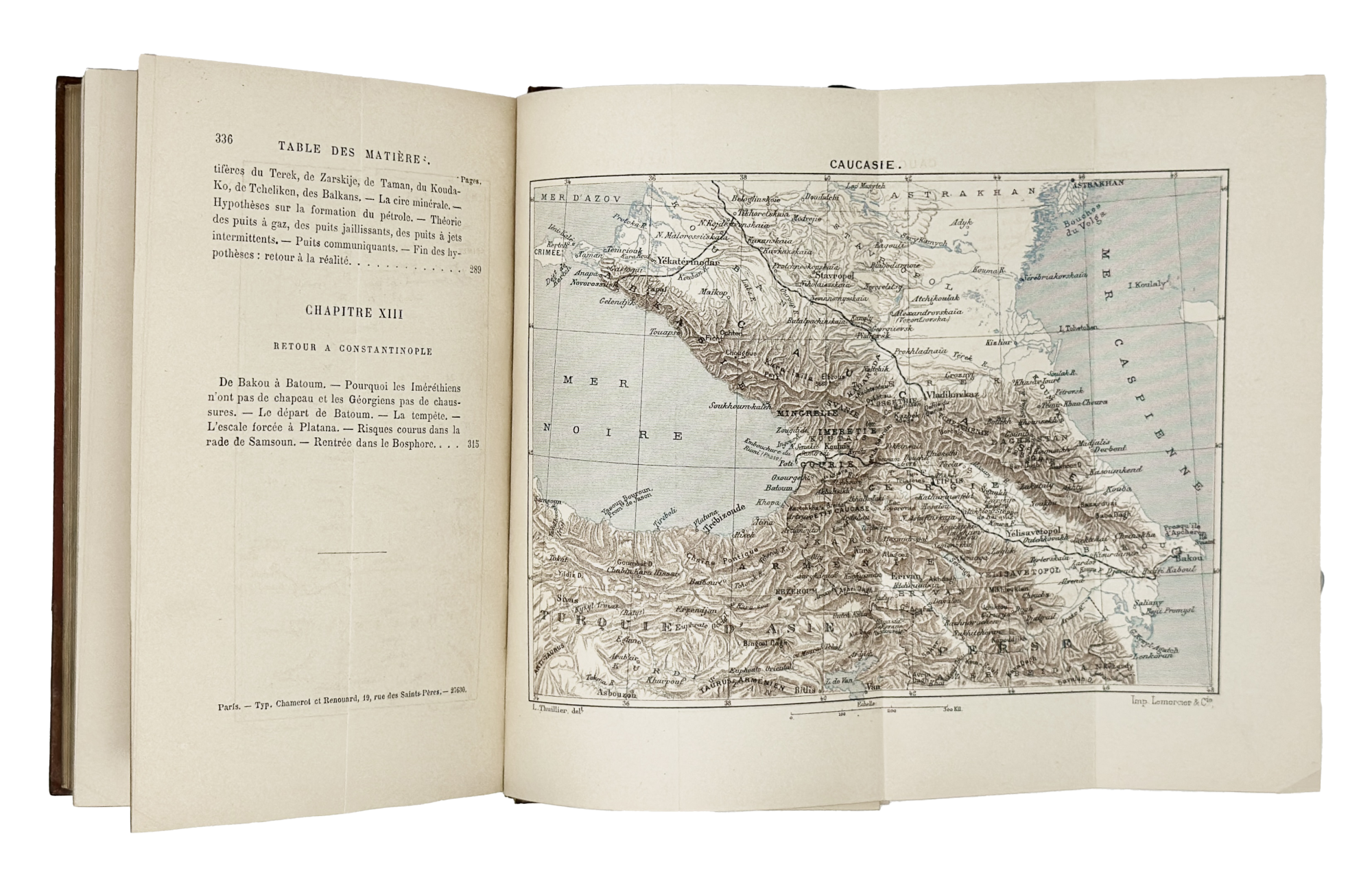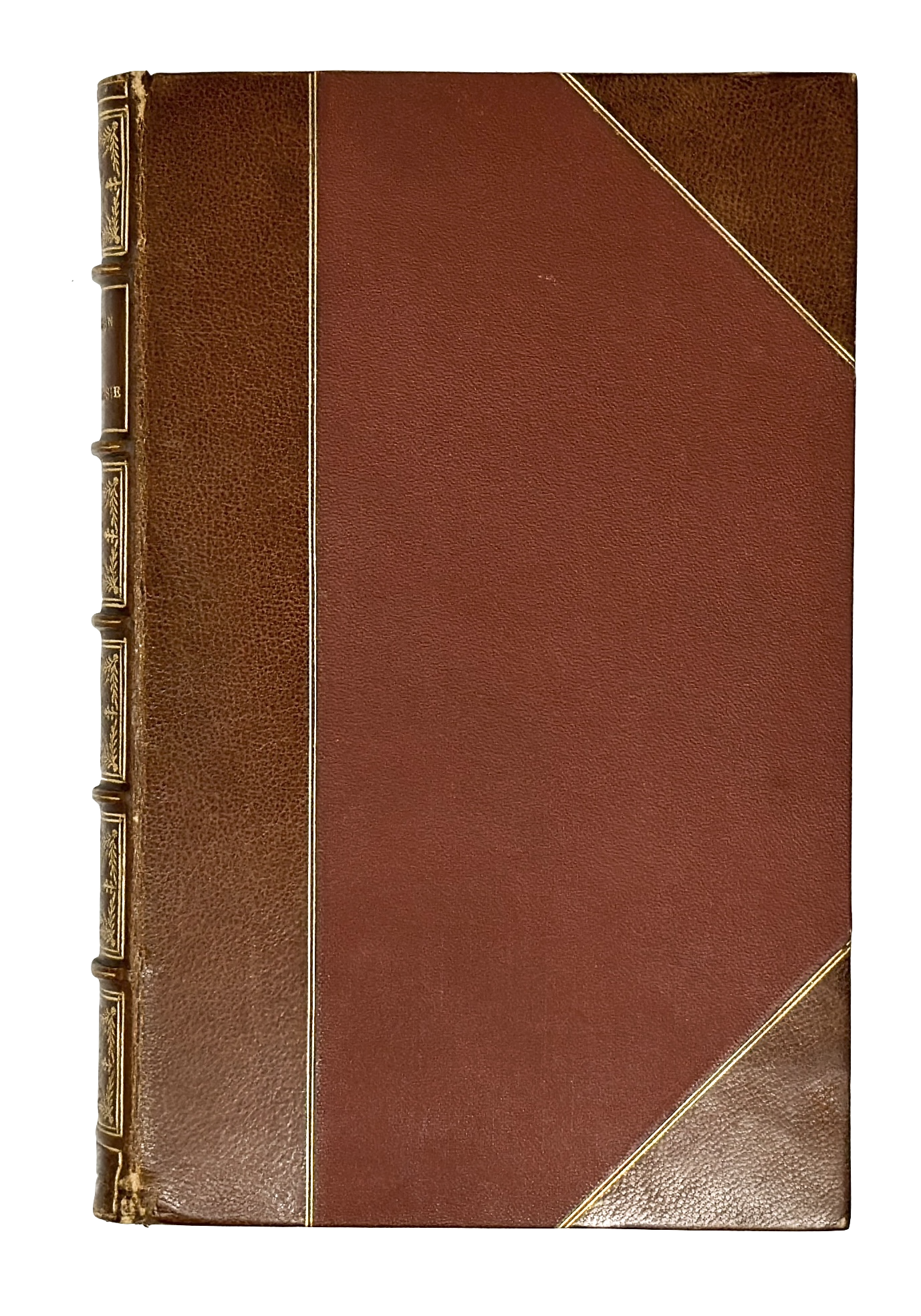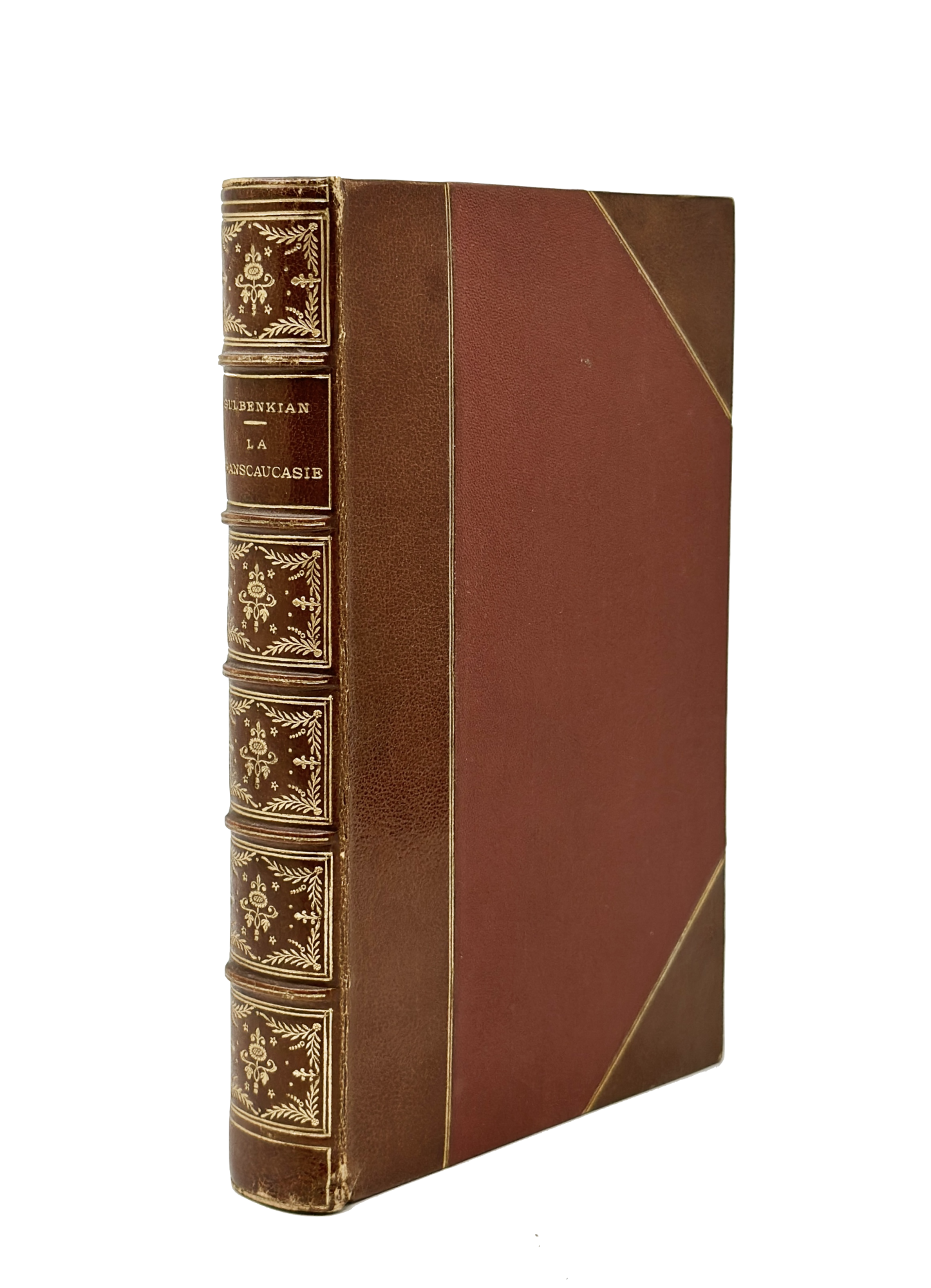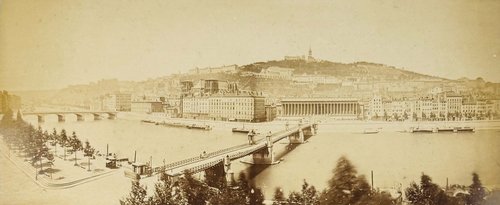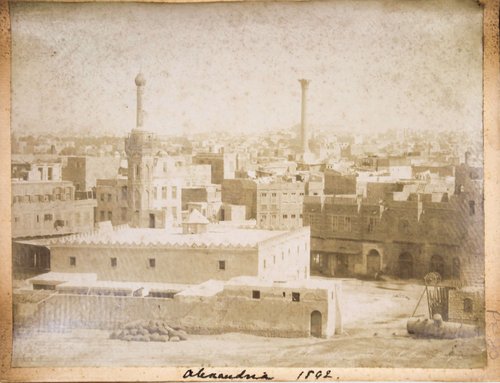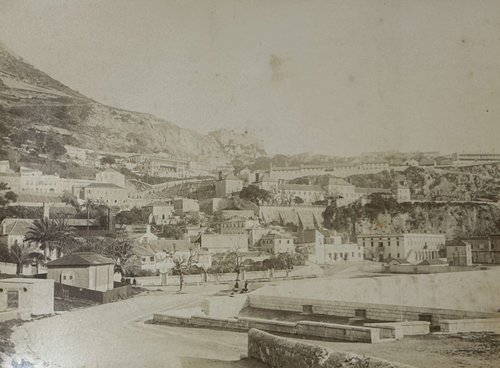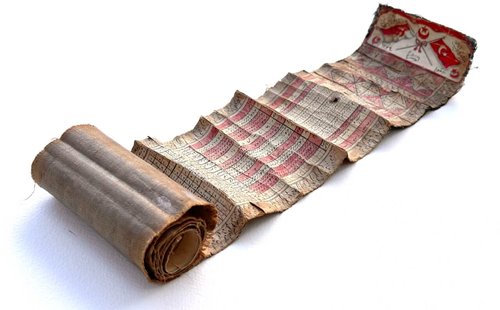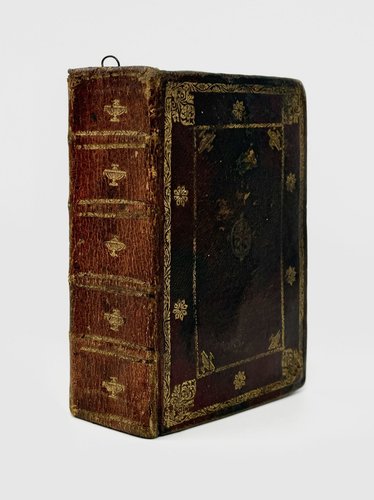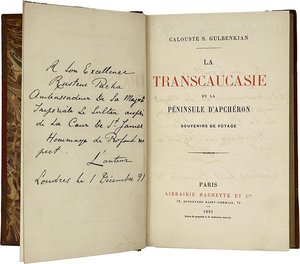
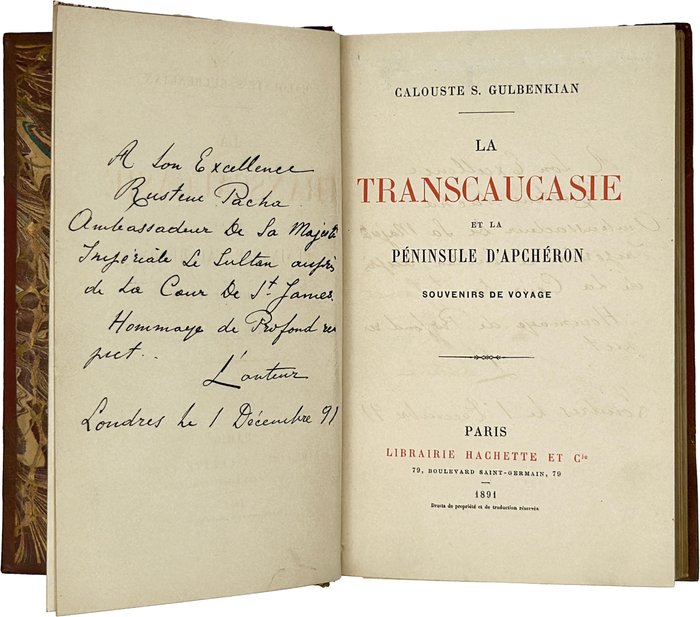
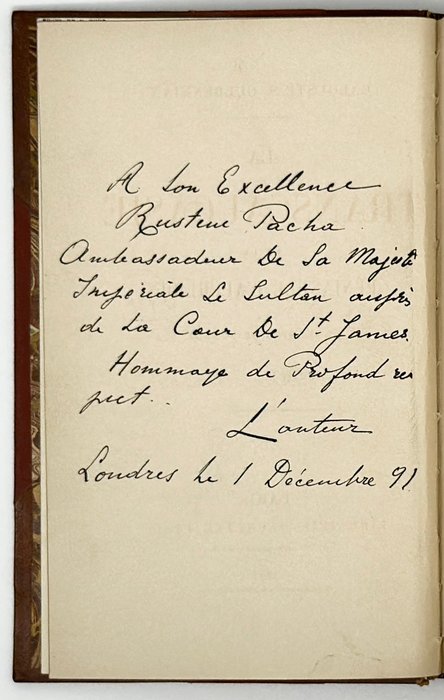
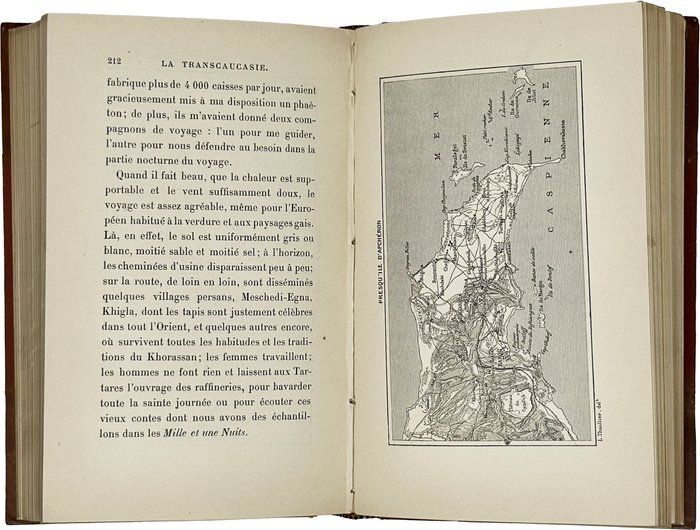
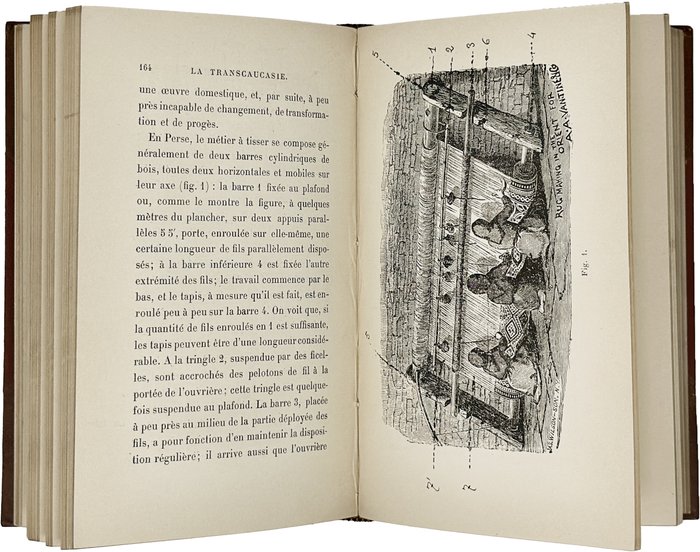
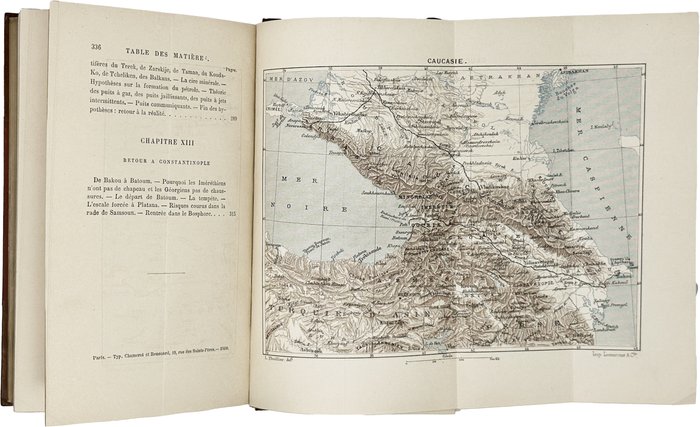
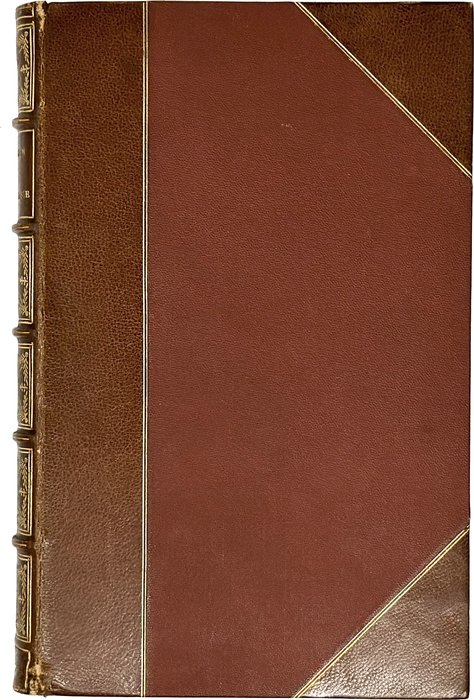
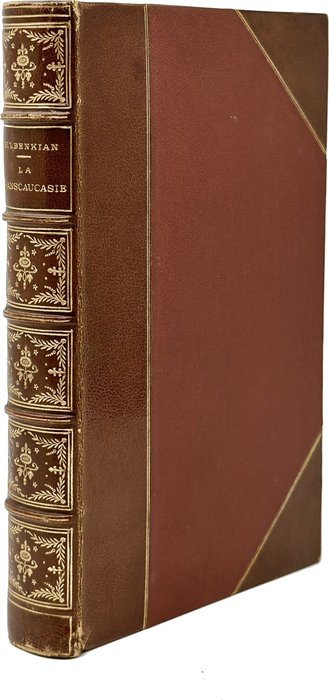
#BK2190
1891
XXXI, 336 p.: ill., 2 folding maps. 18x11,2 cm.
Contemporary half-leather binding. Raised bands, gilt title and ornament on the spine. Marbled paper on the endpapers. Gilt edges. Inscribed by the author to Rustem Pasha on the half-title verso: ‘A son Excellence Rustem Pacha Ambassadeur de sa majesté impériale le sultan auprès de la cour de St James Hommage de profond respect L’auteur Londres le 1 décembre 91’. Near fine condition. Tear of one of the plans. First edition. Rare.
Calouste Gulbenkian (1869-1955) was an Armenian-British businessman, an important personality in the history of the developments of the oil reserves in South Caucasus and in the Middle East, the founder of Iraq Petroleum Company, the first person to discover Iraq oil reserves.
Gulbenkian's family had close relations with the House of Osman. By 1860, his father Sarkis Gulbenkian was an Armenian oil importer and exporter already heavily involved in the oil industry. Sarkis was an owner of several oil fields in the Caucasus, mainly in Baku, and was a representative of Alexander Mantashev's oil company. Sarkis Gulbenkian also provided oil to the Sultan of the Ottoman Empire. During Hagop Pasha's Directorship, and subsequently, Ministry of the Privy Treasury under Sultan Abdulhamid II in 1879, Sarkis acquired the lucrative collection of taxes for the Privy Purse of Mesopotamia.
Calouste graduated King’s College in London in 1887 and was sent to Baku to study the Russian Oil Industry and this book came out because of the trip.
It includes the chapters On Batumi, Samegrelo, Tbilisi, the carpets of the Caucasus, Baku, Apsheron Peninsula and ‘La Vile Noire’ – now known as ‘Chernogorod’, the place where the first Russian oil pipeline was built in 1878. Author dedicates more than a half of the book to Azerbaijan and its oil development, as well as the history and the culture, which is unusual for the traveler to South Caucasus in the XIXth century, but understandable because of the author’s profile.
Widely known, the account of this trip has been read by the Minister of Finance of the Ottoman Empire, Hakob Kazazyan Pasha, who commissioned the young Gulbenkian to compile a similar study on the prospects for developing the oil fields of Mesopotamia. This and 30 000 pounds of starting capital has allowed young Gulbenkian to start a career in oil business.
As part of writing the study, Calouste studied a large amount of literature on travel and conducted many conversations with workers and engineers involved in the construction of the Baghdad Railway. After studying the study by the Ottoman minister, a decision was made to buy up land in Mesopotamia for oil production and establish the first oil company of the Ottoman Empire, the Turkish Petroleum Company. This was the beginning of the history of the development of Arab oil fields and the history of Calouste Gulbenkian's mediation in the oil business.It is hard to tell how Hakob Kazazyan Pasha, an Armenian-Turkish minister in the government of Abdul Hamid II came across the work of Galouste on Apcheron oilfields – with the connections Gulbenkian's family had, it could have happened a number of ways. However, this copy has been presented to another high-ranking Ottoman civil servant at the time – the ambassador to the UK at the time Rüstem Mariani Pasha (1810-1895), who could have played a part in spreading the word about the young entrepreneur. Rüstem Pasha served as an ambassador to Russia in the 1860s and naturally was interested in the subject. In 1873-1883 he was a governor of Mount Lebanon before being transferred to his final position in London.
Calouste Gulbenkian went on to become one of the founders of Turkish Petroleum Company. It was created in 1912 - a consortium of the largest European oil companies and banks, the purpose of which was to jointly acquire rights to explore and develop oil fields in the Ottoman territory of Mesopotamia, while excluding other interests. German interests were limited to 25% shares (Deutsche Bank), British - 50% (Anglo-Persian Oil Company), Royal Dutch Shell - 25%. Under the terms of the Foreign Office agreement of March 19, 1914, the Anglo-Persian Oil Company and Royal Dutch Shell each gave Gulbenkian 2.5% of the total value of the assets as a beneficiary. This alongside other deals done through the years has made him one of the richest people in the world. In the 1940s during the war he accepted the offer to move to Portugal and the diplomatic immunity. Since his death in 1955 the Gulbenkian Foundation has been operating in Lisbon and worldwide.


